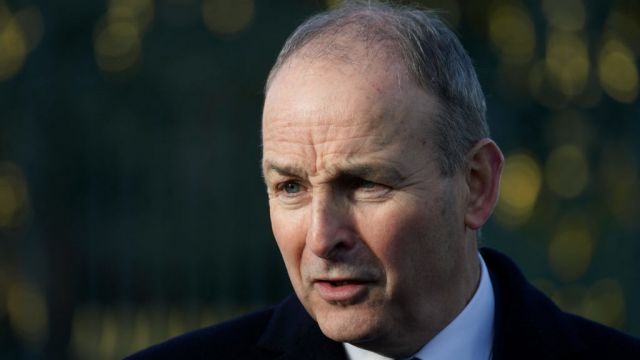Tánaiste Micheal Martin has said that governments sometimes have to make “unpalatable” decisions on how to spend public finances, including in respect of legal cases it faces.
He was speaking in response to questions about whether there was a strategy to withhold disability payments from vulnerable people in institutional care, despite legal advice reportedly indicating it could not be defended.
The issue was highlighted by an RTE Investigates programme, which revealed that a memo which dates back to 2009 reportedly outlined that if families were to take legal cases, they would likely succeed.
Responding to questions from Sinn Féin, Mr Martin said that in the past two-and-a-half years of the current government, it has committed “about six billion in retrospective payments” to three or four areas.
“Calls have to be made as well in respect of the needs of the current generation and the future, in terms of the allocation of resources,” the foreign affairs minister said during Leaders’ Questions.
“There will be good times and there will be bad times in terms of public finances and economies are cyclical.
“And there’s a very fundamental issue in terms of how one allocates those resources. In any one time there can be up to 30 sensitive cases before government.
“And ultimately the government of the day has to make decisions in respect of them, not all of them palatable or in any way desirable.”
Yesterday, Taoiseach Leo Varadkar said that the State had received advice that it had no legal defence not to retrospectively pay out to people, saying the State “hadn’t a leg to stand on”.
“Since 2007, (the disability payment) has been paid in full to people with disabilities living in long-term care, so this matter was resolved 15 years ago,” he said.
“However, the question that arose in 2009 is whether there should have been back pay – whether there should have been retrospection.”
He said the government would look into the issue in the coming weeks before responding further.
It comes as the Attorney General is due to submit a report to Cabinet next week on medical card holders who were charged for nursing home care after they could not get places in public providers.
The Mail On Sunday reported at the weekend that there was a legal strategy to settle the cases out of court to prevent further cases from being taken, after a 2010 Ombudsman’s report into the issue found the charges were “illegal”.
Whether the charges are illegal has never been tested in the courts, but the State maintains there is no obligation on it to pay for private nursing home care.
“I do think the government has a responsibility to do what is right and just, and we do also have a responsibility to protect the taxpayer and the common good,” Leo Varadkar told the Dail on Wednesday.
“You can’t spend the same euro twice.”







